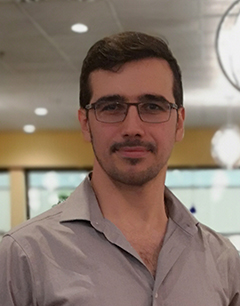So What Happened at Nuremberg?
Amidst the ashes of WWII, a major battle was waged between those deep state forces that had funded fascism as a "solution to the woes of the great depression" vs those genuine patriots who understood that the very fabric of empire and its associated financial, cultural and legal paradigm had to be destroyed and replaced with a paradigm more befitting human civilization.
Among the leading representative of the patriotic forces loyal to FDR's anti-colonial vision was a man who has been nearly lost to history named Robert H. Jackson (1892-1954). Jackson would serve as Franklin Roosevelt's most trusted legal advisor who first made a name for himself working closely with Ferdinand Pecora in prosecuting dozens of high level Wall Street financiers and pro-fascist industrialists who orchestrated the depression of 1929 and the later coup and assassination attempts against FDR in 1933-1934. After proving himself in combat, Jackson arose to become U.S. Solicitor General (1938-1940), Attorney General (1940-41) and leading member of the Supreme Court from 1941 until his death in 1954.
Knowing that the deep state coup that ousted Vice-President Henry Wallace and imposed Anglophile tool Harry Truman onto the USA might destroy the hopes for a post-WWII order of peaceful cooperation as outlined by the United Nations Charter, Judge Jackson took the lead and organized the Nuremberg Tribunals delivering the opening speech on November 21, 1945:
One of the prime motives behind the hearings was the intention to give legal meaning and action to the universal ideals conveyed in the United Nations' Charter. This charter encapsulated the principles that FDR and Henry Wallace outlined repeatedly in the Four Freedoms. These freedoms asserted that all humankind regardless of race, sex, creed, or nationality would: 1) have the freedom from want, 2) freedom to worship as one's conscience dictated, 3) freedom from fear, and 4) freedom of speech. If international law could tolerate wars of aggression, or if abdication of responsibility for ones' criminal deeds could be tolerated on the basis of "I was just following orders", then the UN Charter could carry little weight indeed.
As Jackson wrote in his Summer 1945 report to the President justifying the creation of the Nuremberg Tribunal:
"We therefore propose to charge that a war of aggression is a crime, and that modern international law has abolished the defense that those who incite or wage it are engaged in legitimate business. Thus, may the forces of law be mobilized on the side of peace."
During the course of the 11 month proceedings, not only were leading cabinet members, generals, lawyers and other high officials put on trial, but the deepest facets of natural law vs Nietschean "law of the strongest" was investigated with Platonic rigor as laid out in the brilliant award-winning film Judgement at Nuremberg (1960).
View of judges panel during testimony Nuremberg Trials 1945.
(Image by Wikipedia (commons.wikimedia.org), Author: United States Army Signal Corps photographer) Details Source DMCA
Due to the leadership of Justice Jackson, the treatment of INTENTION and conspiracy was made the primary focus in the pursuit of justice and cause of criminal guilt. This was not a popular approach then or today for the simple fact that our world is shaped by many top down forces that want their victims' minds to be forever trapped in the material bottom up world of deductive/inductive logic where immaterial causal intentions and ideas can never be found. For anyone wishing to pursue this fruitful line of thinking further, I suggest reading Edgar Allan Poe's Eureka.
When one adopts the view that intentions and conspiracies (i.e.: the effect of intentions + ideas when put into action) ARE NOT a driving force of politics and life, then we forever loose our ability to judge truthfulness in any serious manner. This was the philosophical premise of leading Nazi financier Hjalmar Schacht, whose moral relativism and cold calculating principles of economics directly justified the cheap labor camps that worked millions to death in the German war production effort. This same philosophy again found fertile soil in the post-1971 consumer society that revived the logic of cheap labor production under the age of "cheapest price is the law" globalization.
Quoting Schacht who said "Truth is any story that succeeds", Justice Jackson quipped "I think you can score many more successes, when you want to lead someone, if you don't tell them the truth- than if you do tell them the truth".
Laying out the principled intention of the trial to the American people, Jackson said:
"The common sense of mankind demands that law shall not stop with the punishment of petty crimes by little people. It must also reach men who possess themselves of great power and make deliberate and concerted use of it to set in motion evils which leave no home in the world untouched".
"The case as presented by the United States will be concerned with the brains and authority in back of all the crimes. These defendants were men of a station and rank which does not soil its own hands with blood. They were men who knew how to use lesser folk as tools. We want to reach the planners and designers, the inciters and leaders".
(Note: You can view every article as one long page if you sign up as an Advocate Member, or higher).





